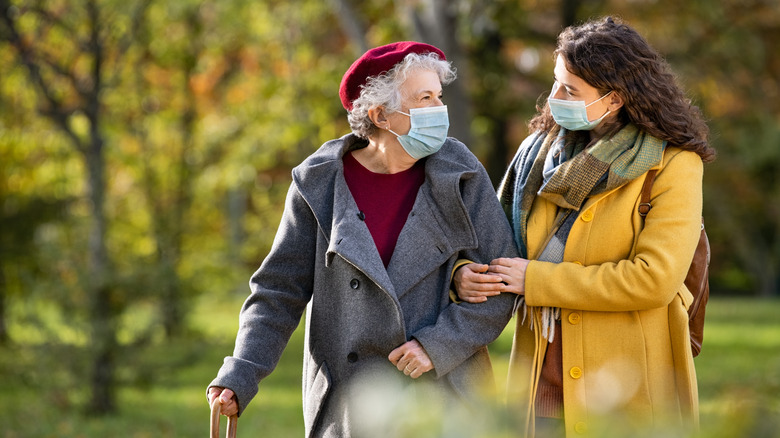Study Finds Surprising Factors That Affect Your Risk For COVID-19
Although we've learned a lot about COVID-19 over the past two years, there is still a lot we don't know. However, researchers are continually looking at factors that seem to influence who gets infected with COVID, what their symptoms are, and how long their symptoms last. Recently, researchers were able to identify several underlying health conditions that can impact how likely you are to get COVID. A recent study published in the Journal of Allergy and Clinical Immunology found that people who have food allergies are less likely to become infected with COVID than people without food allergies.
On the flip side, people who are obese or have a high BMI are more likely to become infected with COVID than people who are not obese or overweight. The study also found that people with asthma do not have an increased or decreased risk of developing COVID from that factor alone.
Other risk factors for COVID-19
Many other risk factors for COVID-19 have been identified in recent years. According to Healthline, people who are older are more likely to get COVID and have serious symptoms. This is because as people age, they are more likely to have underlying medical conditions that put them at risk for complications from the virus. Many older people also don't have the same immune system strength as younger people. A weakened immune system at any age can increase your risk of getting COVID.
People with several underlying health conditions are at a high risk of getting COVID. Some of these health conditions include diabetes, heart disease, obesity, and chronic lung disease. Pregnant women are also more susceptible to certain infections, including COVID. This is because the immune system can be weaker during pregnancy. Additionally, pregnant women are more likely to be hospitalized from the virus. Mental health conditions including depression and schizophrenia can also negatively impact someone's experience with COVID-19.


